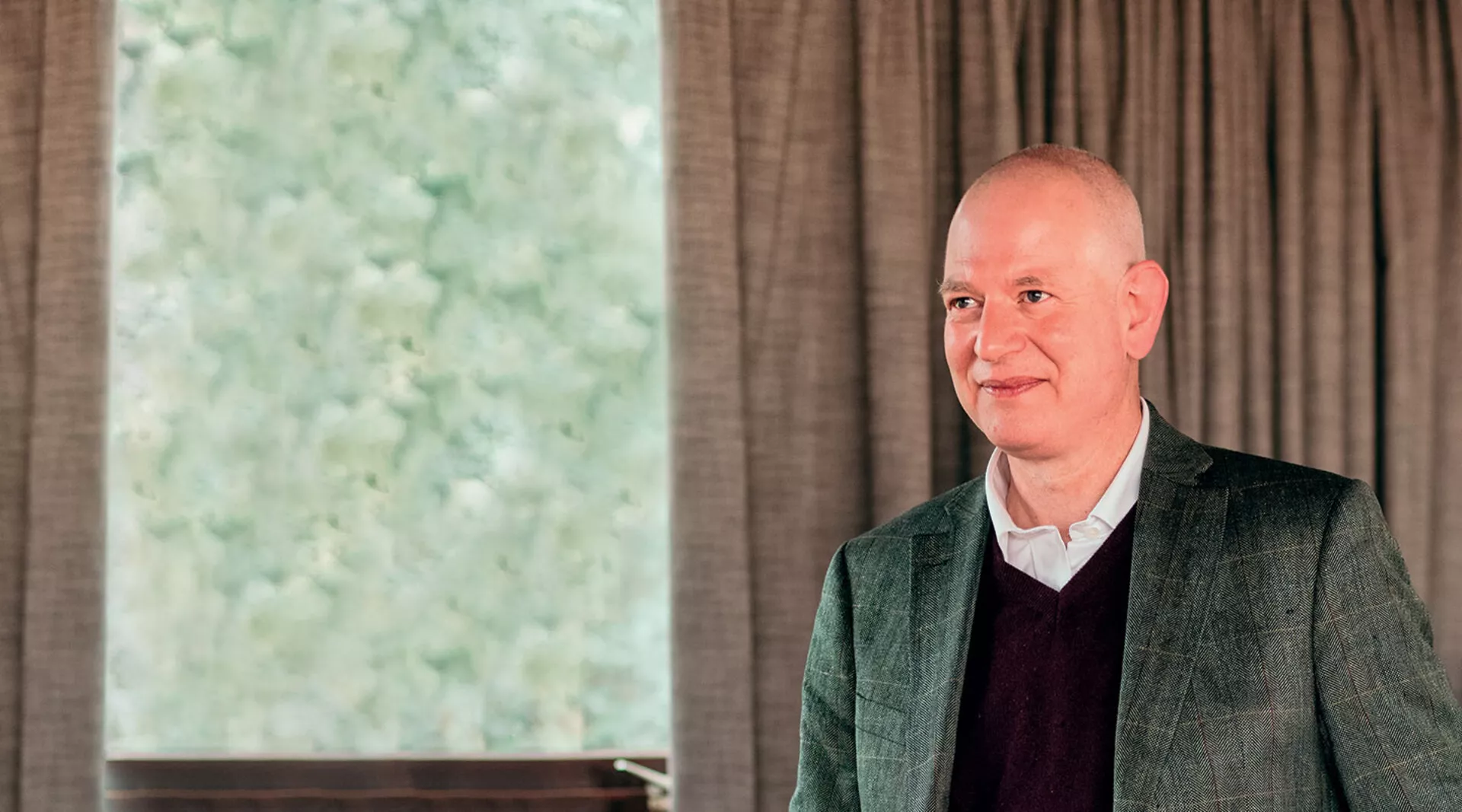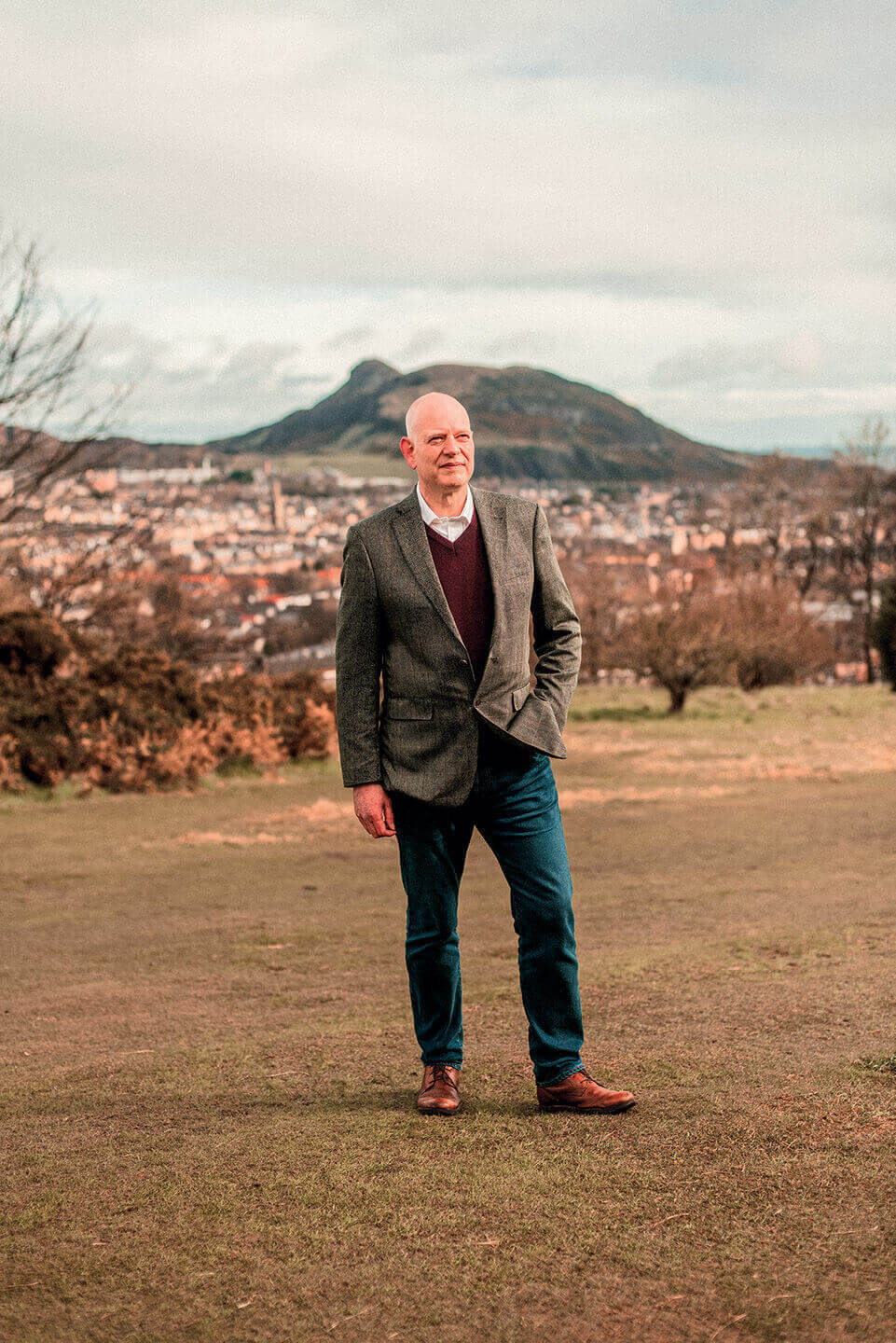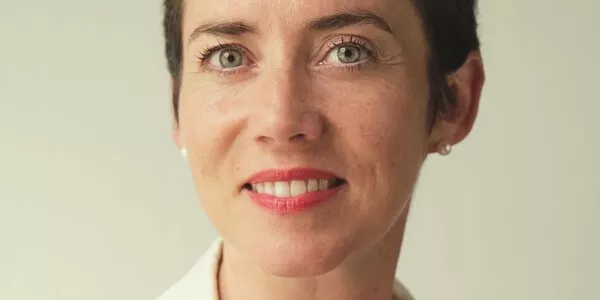
Hope is my outlook
Dr Richard Tipper hasn’t been wasting any time when it comes to devoting his life to tackling climate change. Dr Tipper is currently the co-founder and Chairman of Ecometrica, an environmental monitoring solutions company. He previously worked as a science and policy adviser on climate change issues for major businesses, international organisations, and governments. He is the instigator of one of the most successful community carbon- capture programmes there was a lot of interest in food production and how developing countries would feed themselves. I wanted to know more about this, so I decided to study Agricultural Sciences at the University of Edinburgh. I was more interested in the human, rather than the environmental, side of things.”
Chiapas, Mexico: where it all started
Dr Tipper’s first professional experience as an adviser to farmers’ organisations in Chiapas, Mexico, was certainly a career game changer. He was able to work in one of the most diverse places in the world, from a cultural and ecological perspective, and he worked directly for farmers rather than through a government project. “I was employed by a local cooperative to help address coffee improvement processes”, he recalls. “However the project was not entirely successful due to economic and organisational issues. This convinced me to conduct further research on the economics of contemporary Mayan farmers for a PhD at the University of Stirling. More importantly, it made me a lot more determined to stay connected to this fascinating region and to see how I could improve rural livelihoods and people’s prospects, while at the same time looking after the environment.”
I wanted to take initiatives to improve rural livelihoods and people’s prospects and look after the environment at the same time.
Supporting climate-sensitive communities
Dr Tipper kept his promises. In 1994, driven by the desire to help local communities at the forefront of the climate crisis, he created Plan Vivo, a tree-planting scheme. Plan Vivo, which was revolutionary for its time, generated the world’s first carbon credits and is now one of the most successful and long-standing community carbon capture programmes based on reforestation and sustainable forests. “The government-funded carbon capture forest projects were inefficient”, he says. “Our idea was to offer sustainable livelihoods for communities, whose environments were degraded, in the form of carbon benefits to fund their land-management improvement operations. Our method succeeded because it was not imposed by the government and also because it structured the relationship between peoples’ interest in financing the sequestration of carbon versus people needing to plan their land use.” Plan Vivo is still running and has, to date, captured 3.5 million tons of CO2 from the atmosphere, benefiting 16,000 smallholders.

Dr Richard Tipper
“As with the health crisis, a lot of environmental damages pile up on the most disadvantaged people. Keeping society from fragmenting into different groups and interests is a real challenge.”
Monitoring climate change impacts
This great achievement didn’t stop Dr Tipper from continuing innovative actions to curb the climate emergency. For him, one of the best ways to help governments and companies tackle climate change issues more efficiently was to provide them with monitoring solutions. Having worked for the Edinburgh Centre for Carbon Management on carbon accounting, he decided to set up Ecometrica, his own company in 2008, to develop more efficient accounting methods on a much wider scale. The Edinburgh-born company helps governments and businesses map and track their impact on natural assets using data from satellites and drones. “We are not here to tell our clients how to improve their footprint”, explains Dr Tipper. “We try to help organisations set up systematic ways of monitoring and accounting, in order to provide a backbone of what the current status and the projection of their impact on natural assets will be. It’s like a financial accounting system.” And it works! From setting up business travel policies, switching to different fuels, or incentivising senior staff to achieve their environmental targets, a host of companies have adopted concrete actions to improve their carbon footprint, based on Ecometrica’s solutions.
Remaining optimistic
What really stands out with Dr Tipper, compared to a typical alarmist environmentalist, is his hope for the future. He is confident that society will be able to adapt to climate change. For him, environmental management has improved over the past decade and things are going in the right direction. But he is aware that there is always the potential for things to take a u-turn. He saw this during the last financial crisis: things seemed to be going greener up to 2008 until the financial crisis put a stop to it all. With the current health crisis, many companies are understandably focused on survival rather than on their green initiatives. The COP 26 has also been delayed by a year. Dr Tipper says that what is interesting this time is that governments seem to be using green-based financing and green recovery as part of the recovery agenda. “I fully acknowledge the important role that governments need to play”, he explains. “People are frustrated about the time it takes for regulations to be set in place, but they should understand that governments have a lot of priorities and they need to consult, consider, and get legislation right. I believe that the solution lies in a combination of private and public sector regulations.”
While Dr Tipper is optimistic about society’s ability to adapt environmentally, he sees climate change as a major threat to our democracy, government models and values. “As with the health crisis, environmental damages pile up on certain groups in society – usually the most disadvantaged people. It will be difficult to keep society from fragmenting into different groups and interests and to maintain unified action. This is the real challenge for me.”
Going further
When asked if he dreams of a “better world” in which resources are perfectly managed, Dr Tipper replies: “Hope is my outlook”. He believes that you can go very far with a lot of work and patience. He is confident for the future and is relying on the younger generation which he believes to be smart and kind. And don’t expect Dr Tipper to spend the next decade working “simply” as Ecometrica’s Chairman: since lockdown, he has been working on a new project called the “Resilience Constellation”. The project aims to establish an investment fund to help businesses and governments finance the data they need to adapt to climate change and make their systems more resilient. “Often, a lack of funding is an obstacle to implementing actions or developing monitoring systems”, he says. “So, if we provide the necessary funds then that’s one less obstacle removed from the equation!”




